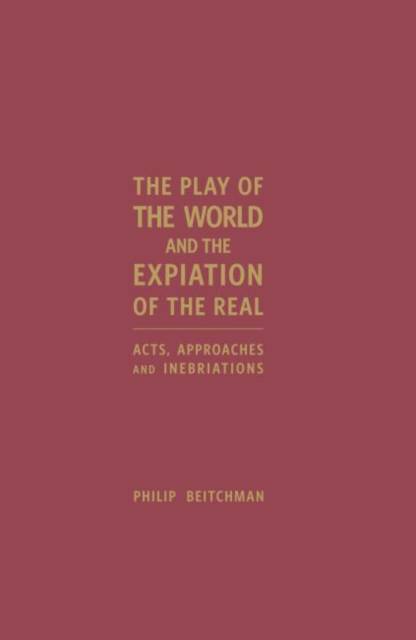
- Retrait gratuit dans votre magasin Club
- 7.000.000 titres dans notre catalogue
- Payer en toute sécurité
- Toujours un magasin près de chez vous
- Retrait gratuit dans votre magasin Club
- 7.000.0000 titres dans notre catalogue
- Payer en toute sécurité
- Toujours un magasin près de chez vous
The Play of the World and the Expiation of the Real
Acts, Approaches and Inebriations
Philip Beitchman
Livre relié | Anglais
97,95 €
+ 195 points
Description
Beitchman on Beitchman: ''Spinoza's pebble thought it was moving freely only because it had forgotten being kicked along the road. Well, do we agree with Spinoza (he wasn't there either when it all began) or the pebble? Whether we are subjects who have a say in what happens to us, or objects pushed around by forces, within and without us, beyond our control, has been argued back and forth for millennia. Beitchman s Play of the World picks up on this 'debate' as refracted through the prism of a variety of works and genres, from Shakespeare's King John of 1593 to Baudrillard's essay on 9/11 of 2001, by way of excursions into the drug overdetermination of notably 'stoned' works like Coleridge's ''Kubla Khan'' and Burrough's Naked Lunch, then up to the mountains of mystical apologetics that move the arena of the debate beyond the materiality of cause and effect, up to 'the heavens' of The Zohar in frankly sacred literature, then down (just a bit) to the theatre highlands of Villiers' Axel and Russian Symbolist Theatre, in their (non)adaptation of the sacred to the profane realities of life on earth. with an excursion on the ramparts of Proust's Platonic denials, because destructive of the autonomy of art, of Sainte-Beuve's 'real life' causality approach to the appreciation of literature; then through the salutary confusion of des Forets' (Blanchot-inspired) self-deconstructing fictions, rendering the whole question of where life ends and art begins or vice-versa nugatory, so intertwined have they become, or we made them... A fortiori now for our online generation. You see, we still haven t decided if we have any say; only since we re still wondering, still talking (like Beckett's 'can't go on, must go on'), we've agreed to continue the conversation, L'Entretien infini, as Blanchot called it.''
Spécifications
Parties prenantes
- Auteur(s) :
- Editeur:
Contenu
- Nombre de pages :
- 284
- Langue:
- Anglais
Caractéristiques
- EAN:
- 9781936320905
- Date de parution :
- 06-09-14
- Format:
- Livre relié
- Format numérique:
- Genaaid
- Dimensions :
- 152 mm x 231 mm
- Poids :
- 566 g

Les avis
Nous publions uniquement les avis qui respectent les conditions requises. Consultez nos conditions pour les avis.






